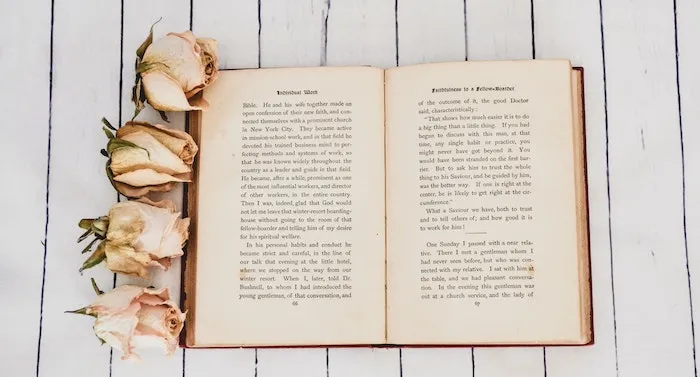
QUIZ: How Well Do You Know the Parts of a Book?
I am fascinated by book as objects. Obviously, I love reading, and I am a big proponent of audiobooks. I don’t even mind reading ebooks! There is something special, though, about the paper book. I find comfort in being surround by them even if they’re stories I have no interest in reading. In my years as a used bookseller, I relished the chance to flip through delicate vintage classics and modern, elaborate pop-up books. They’re part of my decoration in every room of my house. I don’t think this is an unusual position to take on Book Riot, but despite all the time I (and likely you) spend around books, how well do we really know them?
Lately, I’ve been doing books-as-objects deep dives and learning about the history of books and publishing. It started with Why are Books That Shape?, then a history of deckle edges, and now a history of the dust jacket. Each time I do this, I learn more about how books have evolved to be the objects they are today. Did you know that in England, books were originally published and sold unbound, with the expectation that the buyer would then get a bespoke binding to match the other books in their collection? I didn’t.
Just as I spend approximately 18 hours every day on my computer with almost no understanding of how it functions, I’ve been building my life around books and reading with very little background knowledge of their history or specifics. As I learn more about the history of books and publishing, I’m also picking up more terminology about bookbinding. Books seem like a simple object to produce, but they are made up of a surprising amount of small parts.
Do you know the different between recto and verso pages? Can you tell a flyleaf from a pastedown? This quiz will test you on your book anatomy skills.
So? How did you do? If you got more than 50%, pat yourself on the back. You know your books inside and out. If you aced it, I’m going to assume you know your way around an AbeBooks listing: you’re probably a rare books collector or seller. If you didn’t do well and want to go into rare books or bookbinding, it may be worth brushing up on your book vocabulary! If not, rest assured that you don’t need to know what the shoulder of a book is in order to enjoy it.









